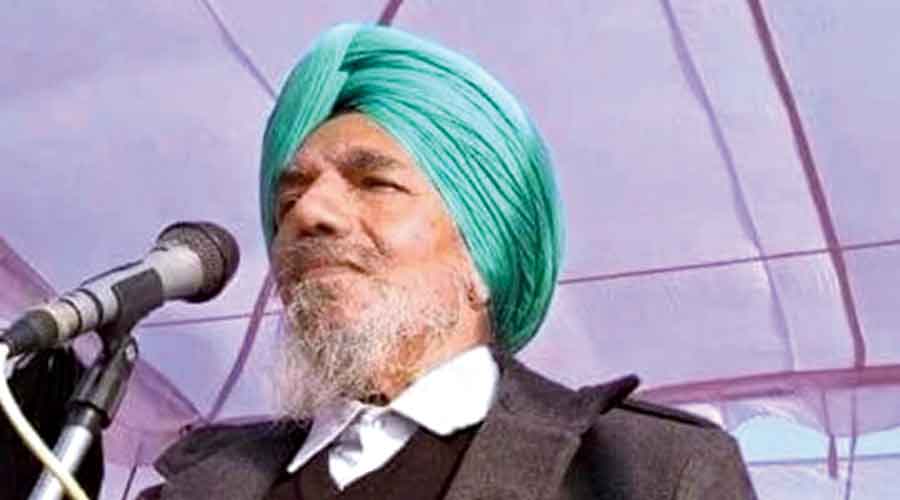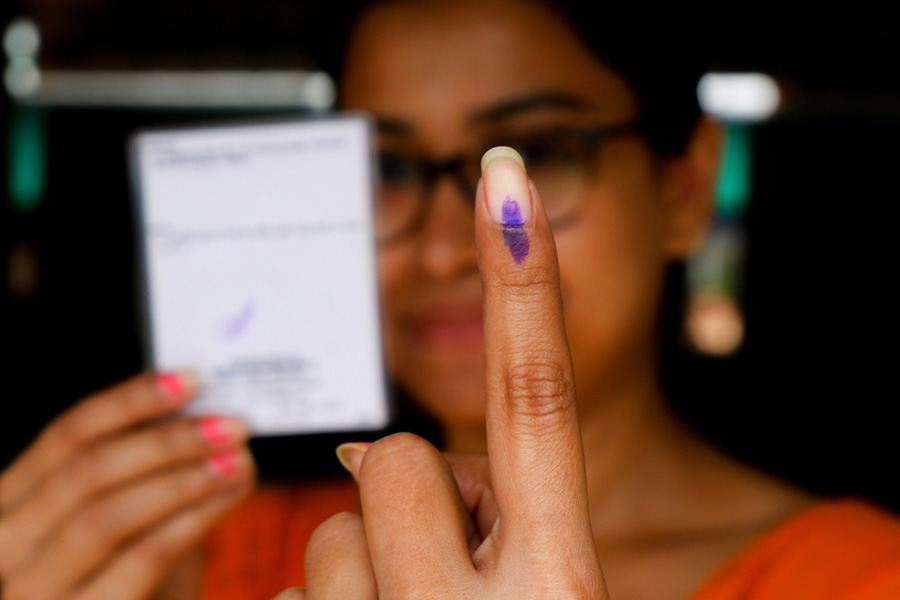Joginder Singh Ugrahan, 75, President, Bharatiya Kisan Union (Ekta Ugrahan)
A former soldier from Sunam tehsil of Sangrur district, Punjab, Ugrahan in 2002 formed what has now become the largest faction of the BKU. The group’s leaders have claimed that almost two-thirds of the protesters gathered at Delhi’s borders are its members.
Ekta Ugrahan has been one of the most uncompromising defenders of farmers’ interests in Punjab, and is arguably the most influential secular organisation in the Malwa region of the northern state. It began agitating in September, staging protests outside the homes of Punjab chief minister Amarinder Singh and former chief minister Parkash Singh Badal.
Ugrahan’s comrade-in-arms is the union’s general secretary, Sukhdev Singh Kokrikalan, 70, an activist from Moga district who quit his job as a government school teacher to join the farmers’ movement in the late 1990s.
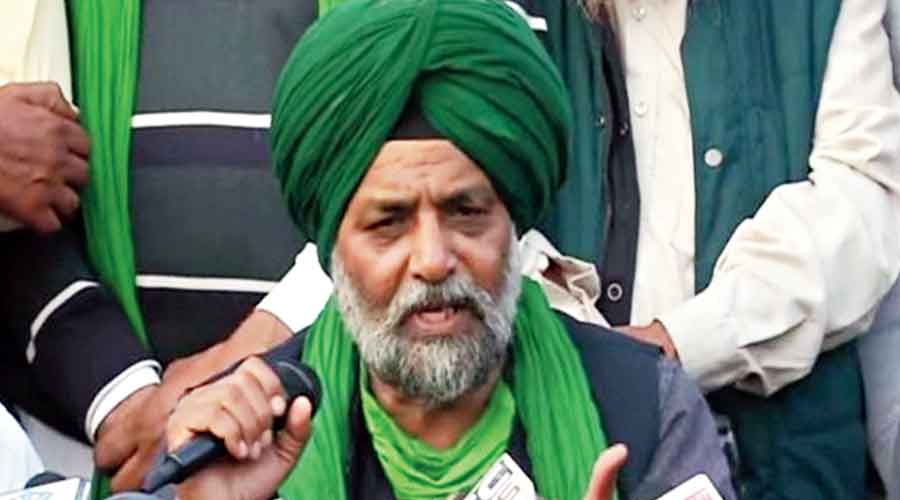
Jagmohan Singh
Jagmohan Singh, 64,General secretary, Bharatiya Kisan Union (Ekta Dakaunda)
An activist since childhood, Singh went to jail before he turned 18. A postgraduate from the border village of Karma in Ferozepur, Punjab, Singh is a qualified acupuncture therapist. He quit his job with the department of cooperatives in 1985 to devote his time to activism, shaken by the anti-Sikh riots in the country the previous year.
He joined the BKU-Ekta group in 1993, and split to form the Dakaunda group in 2005. Singh is considered an expert in agricultural laws, negotiations and the history of the farmers’ movement, and is consulted by other groups too. He began protesting in June against the ordinances that preceded the new farm laws, and was instrumental in bringing in several Punjab groups to cooperate with the All India Kisan Sangharsh Coordination Committee, an umbrella organisation of farmers.
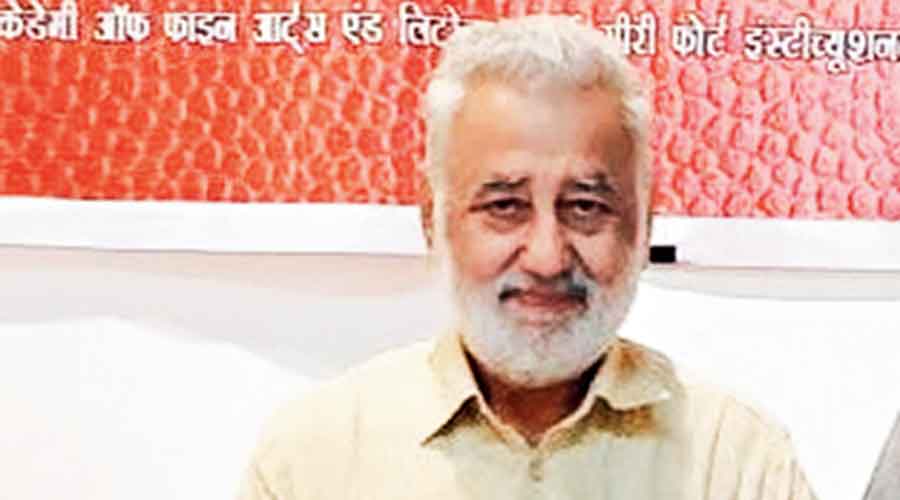
Darshan Pal
Darshan Pal, 70, President, Krantikari Kisan Union, Punjab
Pal is seen as an ideologue of the far-Left in Punjab. An MD in anaesthesia, he retired early from the Punjab Civil Medical Service and began organising the peasantry in 2007.
Before this, he had been involved with several umbrella groups of Left-leaning activists, including the now-banned Revolutionary Democratic Front (to which the imprisoned professor G.N. Saibaba belongs) and the People’s Democratic Front of India, whose members include the jailed author Varavara Rao and anti-dam activist Medha Patkar.
The PDFI had organised several Singur visits by its activists to protest the eviction of peasants to set up Tata Motors’ Nano factory — one of several attempts at reindustrialising Bengal that led to the downfall of the Left Front government in 2011.
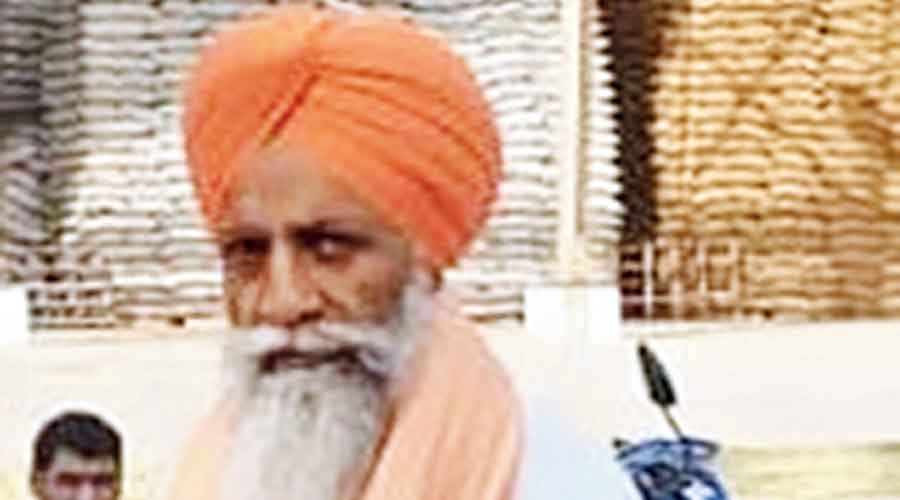
Gurnam Singh
Gurnam Singh, 64,President, Bharatiya Kisan Union, Haryana
Hailing from Charuni Jattan in Kurukshetra district, Haryana, Singh leads the most prominent faction of the BKU in the state. He is known for creative protests, having led shirtless protesters, organised the dumping of potatoes on highways, and climbed up a high water tank last year to force the state government to procure the sunflower crop.
His wife Balwinder Kaur contested the 2014 Lok Sabha polls from Kurukshetra on an Aam Aadmi Party ticket, while Gurnam himself contested last year’s Assembly elections as an Independent from Ladwa. Haryana police booked him last week in an attempt-to-murder case after he allegedly got the protesting farmers to drive their tractors through a police barricade on a highway.
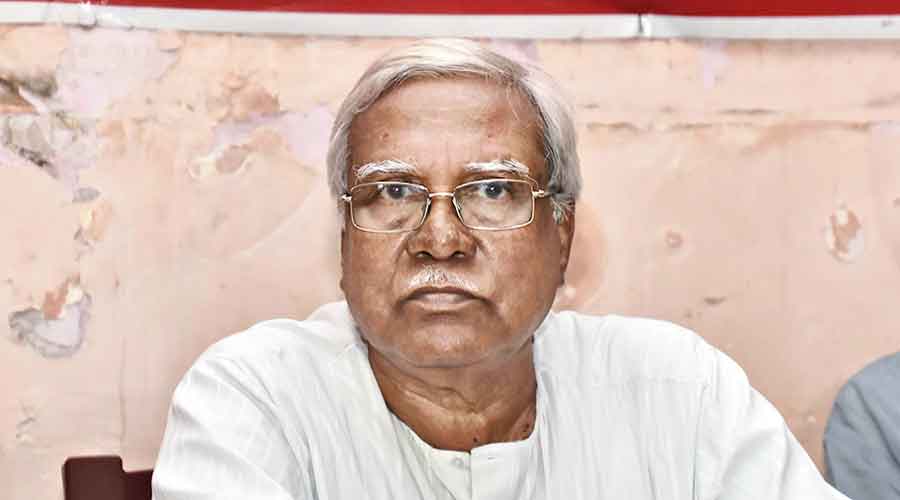
Hannan Mollah
Hannan Mollah, 74, General secretary, All India Kisan Sabha (CPM farmer arm)
Mollah, a former CPM parliamentarian who has been a politburo member of the party since 2015, was elected from Uluberia in Bengal eight times in a row. He has been a grassroots communist since the age of 16 and was elected to his current position in the AIKS, considered India’s largest group of organised peasantry, in 2012.
Under Mollah and AIKS president Ashok Dhawale, a 68-year-old doctor from Mumbai known for organising tribal peasants in Thane and Palghar, the organisation has led several large farmer agitations, most notably in Maharashtra in 2018.
Mollah was initially not invited to the ongoing talks but the government later relented when the farmers insisted the agitation was not confined to Punjab and therefore its leaders from outside the state should be invited too. The CPM stalwart brings decades of political and parliamentary experience to the negotiation table.
Mollah has been booked by Delhi police on the charge of violating pandemic regulations while protesting against the new farm regime. Over the last fortnight, the AIKS has held militant demonstrations against the new laws across India, particularly in Maharashtra.
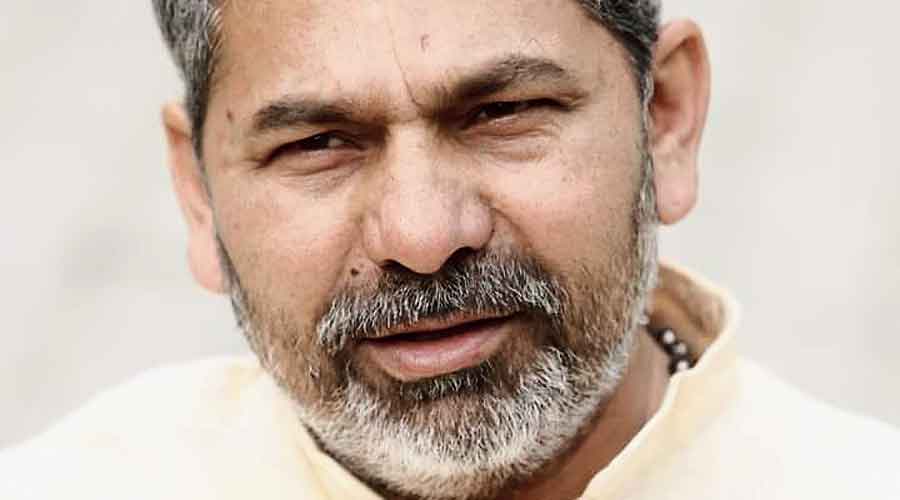
Rakesh Tikait
Rakesh Tikait, 51, National spokesperson, Bharatiya Kisan Union
Tikait is the son of Mahendra Tikait, one of the farmer leaders who in 1978 founded the BKU, which a decade later led a historic demonstration by lakhs of farmers in Delhi demanding waivers of water and power bills. Rakesh Tikait’s BKU faction joined the current agitation after farmers of Punjab and Haryana faced police action
at Delhi’s borders on November 27. His group’s participation in the talks too happened later than others’.
Tikait lost his deposit in the 2014 Lok Sabha polls, which he contested on a Rashtriya Lok Dal ticket from Amroha, Uttar Pradesh. He recently rued that defence minister Rajnath Singh was not part of the talks.
Tikait, who has been striving to shake off the perception that he is close to the BJP, has got his supporters to block the Delhi-Uttar Pradesh border at Ghazipur.
He brings to the table the support of sugarcane farmers of Uttar Pradesh, who have tilted towards the BJP since 2014 but are now resentful of the new farm laws that some fear will undermine their bargaining power over sugarcane procurement.

